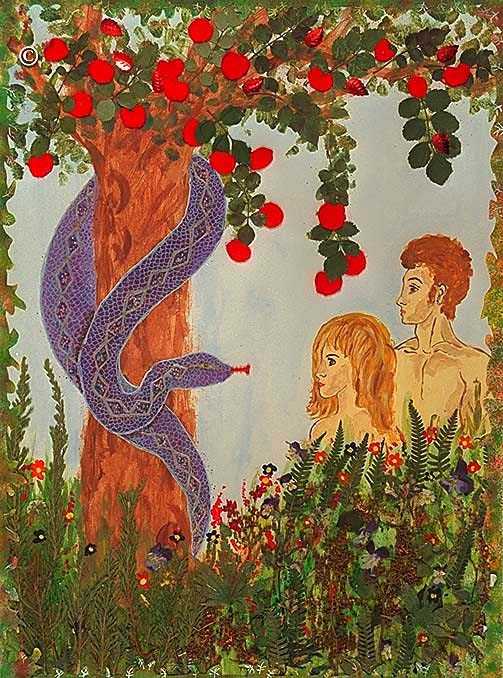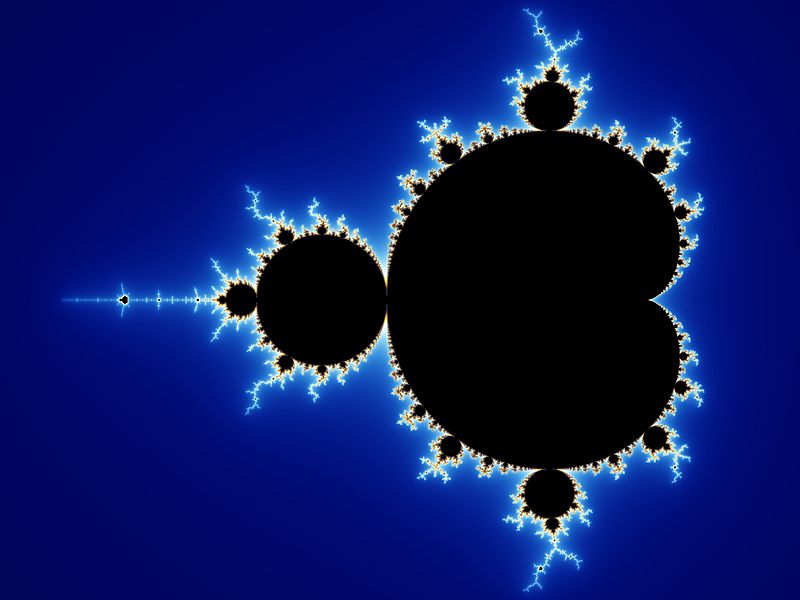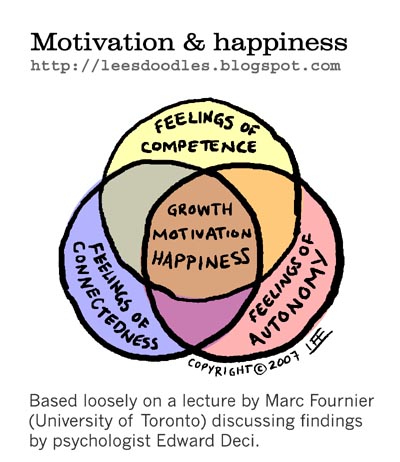Quote of the day:
"I once wanted to become an atheist, but I gave up - they have no holidays."
~ Henny Youngman
Image of the day (Tristan Campbell):
 BODY
BODY~
The 50-Yard Dash: Sprinting Your Way to Total Leg Development -- "A well-developed hamstring/glute junction is smooth. In other words, the hamstring flows uninterrupted into the glute. Now be honest, does that describe you, or do you have a pronounced gluteal fold? If it's the latter, here's how to fix it and develop the ass of your dreams."
~
Muscle Training Do's And Don'ts - Safe And Effective Resistance Training Is Key To Overall Fitness -- "Resistance training is crucial to holistic fitness, said Len Kravitz, Ph.D., in a presentation today at the American College of Sports Medicine (ACSM) 11th-annual Health & Fitness Summit & Exposition in Dallas, Texas. Kravitz, a national fitness expert, explained muscle training and its contribution to overall health and performance."
~
Bottled Or Tap Water - Which Is Best? -- "Although bottled water is perceived as a healthier, safer choice over tap water in consumer surveys, that is not necessarily always true, says sports nutritionist Cynthia Sass, R.D., C.S.S.D."
~
Dispelling The Top 10 Nutrition Myths -- "Don't drink alcohol. Take vitamins. Avoid eating eggs. We've heard these pieces of nutritional advice for years - but are they accurate? Not necessarily, say two exercise physiologists presenting at the American College of Sports Medicine (ACSM) 11th-annual Health & Fitness Summit & Exposition in Dallas, Texas."
~
Proof at last that organic apples can be better for you -- "Evidence that organic crops contain higher levels of important nutrients has been published by scientists. They said analysis of organic tomatoes, apples and peaches revealed greater concentrations of vitamin C, polyphenols, betacarotene and flavonoids ..."
~
Diabetes-Parkinson's Link Grows Stronger (HealthDay) -- "As people with obesity-linked type 2 diabetes age, their risk of getting Parkinson's disease also climbs, a new study warns."
~
Stem Cell Treatment Could Save Patients With Heart Failure -- "In Study, Leg Cells Injected Into Dead Heart Muscle Dramatically Improved Organ's Performance."
~
Calcium, vitamin D may ward off colorectal cancer -- "People who consume relatively high levels of calcium and dairy products and take vitamin D supplements seem to be protected to some degree against colorectal cancer, researchers have found."
~
Sedentary behavior linked to high blood sugar -- "People who tend to be sedentary -- as indicated by the amount of time they spend watching television -- are likely to have high levels of glucose in their blood, even though they may not be diabetic."
PSYCHE~
How Exercise Makes You Feel, Rather Than Look, Is What Matters -- "Shifting the focus from how exercise may make you look to how it makes you feel may help people start, maintain or even appreciate an exercise program, said Michael R. Bracko, Ed.D., FACSM."
~
Antidepressants May Not Help Fight Bipolar Disorder -- "Patients with bipolar disorder will gain no treatment benefit by adding an antidepressant to a standard mood stabilizer such as lithium, a new study finds."
~
Worries grow over mental health of soldiers -- "While much attention has been on physical wounds like traumatic brain injuries, as well as squalid living conditions for recovering soldiers, doctors, families and lawmakers are expressing growing concerns that veterans are not be getting the right mental health help."
~
Brain's "Default Mode" Awry In Schizophrenia -- "The "default mode," or baseline condition when the brain is idling, is not properly coordinated in patients with schizophrenia and this aberrant activity may be caused by poor connectivity between brain networks, a Yale School of Medicine researcher reports."
~
SciAm on happiness and moral decision-making -- "April's issue of
Scientific American has a couple of concise articles that are freely available online: one on the neuroscience of moral decisions, and the second on the science of lasting happiness."
~
Long Term Depression Eased By Phone-Based Therapy -- "When people receive brief telephone-based psychotherapy soon after starting on antidepressant medication, strong positive effects may continue 18 months after their first session."
~
Psychology: Time Only Heals Some Wounds -- "Human beings are remarkably resilient, but new research shows that it's not always possible to 'get over it' when something bad happens."
~
Brain tissue reveals possible genetic trigger for schizophrenia -- "A study led by scientists from the University of North Carolina at Chapel Hill may have identified a molecular mechanism involved in the development of schizophrenia."
CULTURE~
Study finds children deluged by food ads -- "U.S. children are being deluged by a tidal wave of TV ads for foods like candy, snacks, sugary cereals and fatty fast food, according to a study that exhaustively tallied the number and type of ads kids see."
~
Single people subject to negative stereotypes -- "A recent
Time magazine
article on why marriage is viewed so positively despite the divorce statistics, suggested that single people are the subject of negative stereotyping and discrimination."
~
The Book of Job: Why God needs Satan -- "While not reading Job, I apparently developed a gross misconception about what it was. Like everyone with a pulse, I knew the basic outlines: God bets Satan—a gentleman's bet, no cash at stake—that His most upright servant, Job, will remain faithful even in the face of catastrophe. God and Satan afflict Job, and he endures patiently. "
~
A New Wrinkle in Rove's Role in DOJ Scandal -- "Did Karl Rove have a hand in replacing the fired U.S. attorney in New Mexico? An overlooked e-mail may provide a clue."
~
Inside the human growth hormone boom -- "The dead starlet's autopsy revealed that she was injecting human growth hormone to counter the effects of aging and promote weight loss. Does that work? Inside the HGH boom—and the backlash."
~
Why Everyone's Talking about Twitter -- "Yes, it's silly and shallow. But that's why the service that lets regular people blog about their regular lives is suddenly so popular."
~
From Dream Home to Foreclosure: One Family's Journey -- "As adjustable mortgage rates click upward, a Kentucky family is one of thousands forced from their dream homes and into the nightmare of foreclosure."
~
The Meta Screw-Up -- "Eve Fairbanks writes today about the problem of keeping track of Bush administration scandals:In the last couple of weeks, even in the minds of the lawmakers tasked with oversight, the administration's scandals and screw-ups have started to blur... "
~
Peter Sacks: Being Honest About the Class Divide -- "When it comes to the class divide in America, we can pretend that it doesn't exist. We can pretend that we can become whoever we'd like to be in life, regardless of the family we were were born to, what neighborhoods we grew up in, and what sort of schools we attended. We can believe our opportunities are born from personal choices, cultural values, and our wits."
~
Scientists Discover Key to Fashion Trends -- "There's no grand conspiracy to decide what you'll buy. Rather, a few innovations and a lot of copycats create phenomena merely by chance. And you can bet whatever it is, it'll change."
HABITATS/TECHNOLOGY~
Giant Meteorite Hit Ancient California, Crater Study Suggests -- "A space rock the size of three football fields may have slammed into California more than 35 million years ago, leaving a crater more than 3 miles (5 kilometers) wide."
~
TV box out of the loop as videos stream to Internet -- "The traditional television box may lose its place of honor in the sitting room to a crop of new devices that send films and shows straight to screens and telephones via the Internet, analysts say."
~
Deadly Nut Tapped as Biofuel Source -- "A poisonous plant could help solve Southeast Asia's energy woes."
~
San Francisco Passes Plastic-Bag Ban -- "City leaders approved a ban on plastic grocery bags after weeks of lobbying on both sides from environmentalists and a supermarket trade group. San Francisco would be the first U.S. city to adopt such a rule if Mayor Gavin Newsom signs the ban as expected."
~
Bacteria That Degrades PCBs Identified -- "Researchers have identified a group of bacteria that can detoxify a common type of polychlorinated biphenyls (PCBs), which have contaminated more than 250 U.S. sites, including river and lake sediments."
~
Researchers reveal the tangle under turbulence -- "Picture the flow of water over a rock. At very low speeds, the water looks like a smooth sheet skimming the rock's surface. As the water rushes faster, the flow turns into turbulent, roiling whitewater that can overturn your raft."
~
Light Seems to Pass through Solid Metal -- "Researchers directing a special type of light at metal poked with holes found all the light behaved like a liquid and strangely escaped through the holes."
INTEGRAL/BUDDHIST~
The First Enlightenment : Zazen (3) The Practical Side -- "A concrete explanation of Zazen practice itself."
~
Skepticism and Truth -- From Sean at Deep Surface -- "The most recent show on
Philosophy Talk is about Skepticism. Although it’s not yet streaming from the website, there are some interesting
blog posts related to the show on the Philosophy Talk blog."
~
Conceptuality in Buddhist Practice: Which Rug Are You Standing On? -- From Ryan at Buddhist Geeks.
~
Genocide -- From The Buddha Diaries -- "All of which inspired a particularly uncomfortable meditation this morning, since I wanted to focus my mind on the reality of genocide, and on the stain it leaves on the consciousness of the human race. The effort led me on a three-step journey, unplanned in advance, but nonetheless powerful for that."
~
If your God is homophobic, then homophobia is your God -- From Joe Perez -- "That's a quote from
the latest installment of my new bi-weekly column, "In the Spirit," (Vol. 1, No. 2)"
~
Groundlessness -- "I've found this idea through Pema Chodron and from some of Chogyam Trungpa Rinpoches works. Groundlessness and ego are linked. The ground that I'm talking about is the kind that we provide ourselves by establishing concepts in the real world so that it doesn't seem as scary as it is."
~
The Quickening -- A great poem from Dave at Via Negativa.
~
As orangies go green, greenies go teal -- More from Joe Perez at Until -- "If the right is going postmodern (read: orange going green), then the postmodernists are going integral (read: green going teal/turquoise)."
~
Integral Relationship Post 2 from ebuddha at Integral Practice.
~
Generation Me = Narcissism Squared from ~C4Chaos.
Tags:
narcissism, integral relationship, politics, poetry, groundlessness, In the Spirit, genocide, conceptuality, Buddhism, skepticism, Zazen, Zen, liquid light, turbulence, bacteria, plastic bag ban, biofuels, TV, meteorites, fashion trends, class divide, Meta Screw-Up, foreclosure, Twitter, HGH, Book of Job, Karl Rove, single people, junk food ads, schizophrenia, psychological wounds, depression, happiness, moral decision-making, mental health of soldiers, bipolar disorder, exercise, high blood sugar, colorectal cancer, stem cells, diabetes and Parkinson's disease, organic apples, nutritions myths, tap water, muscle training, sprint training, speedlinking



















